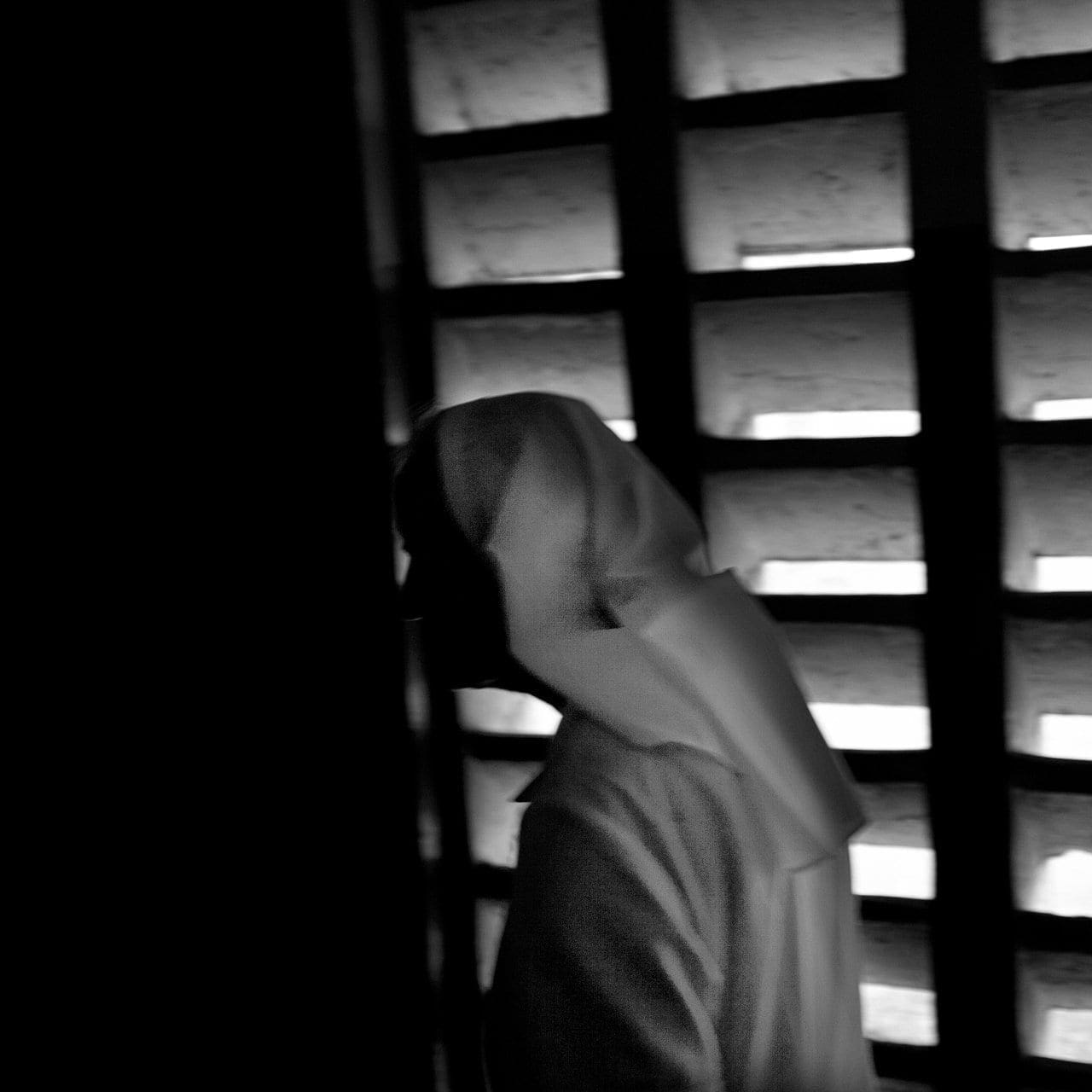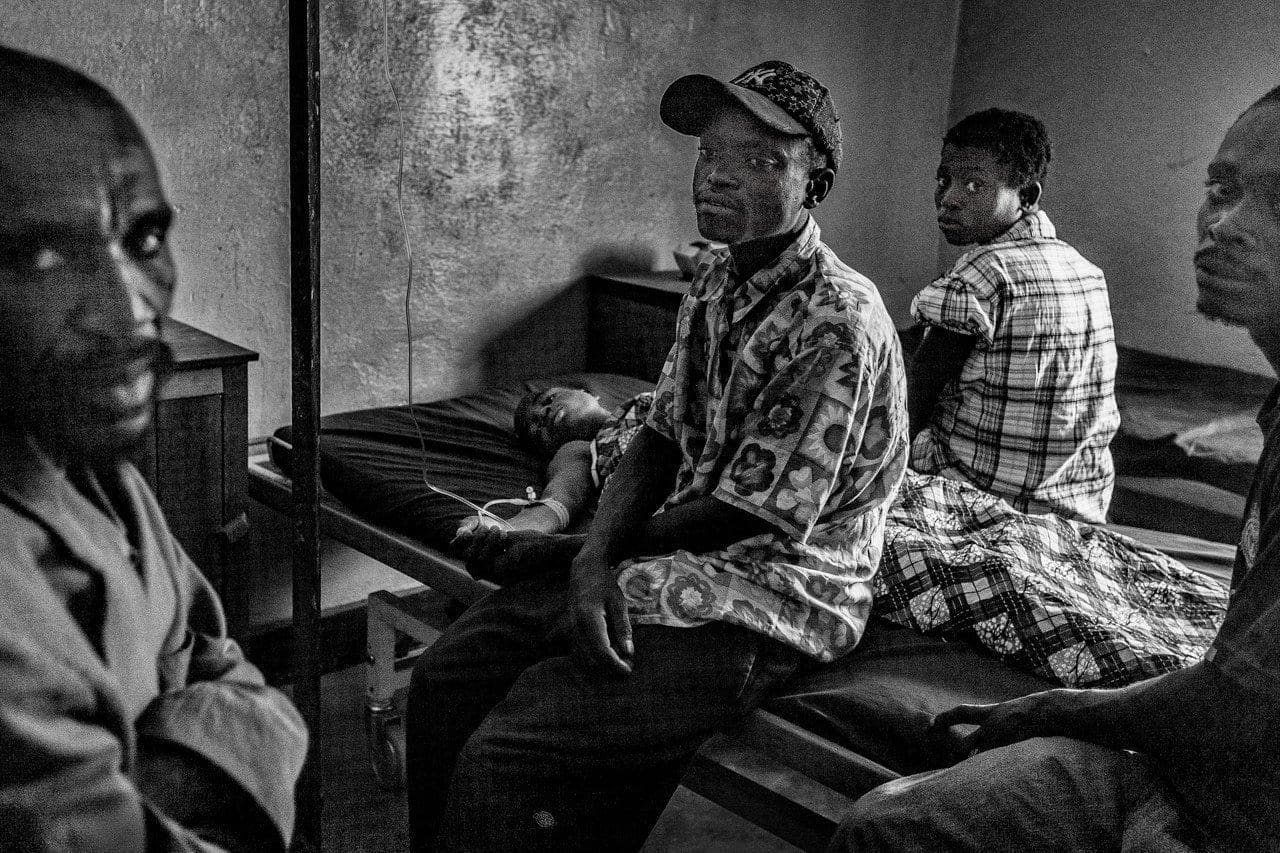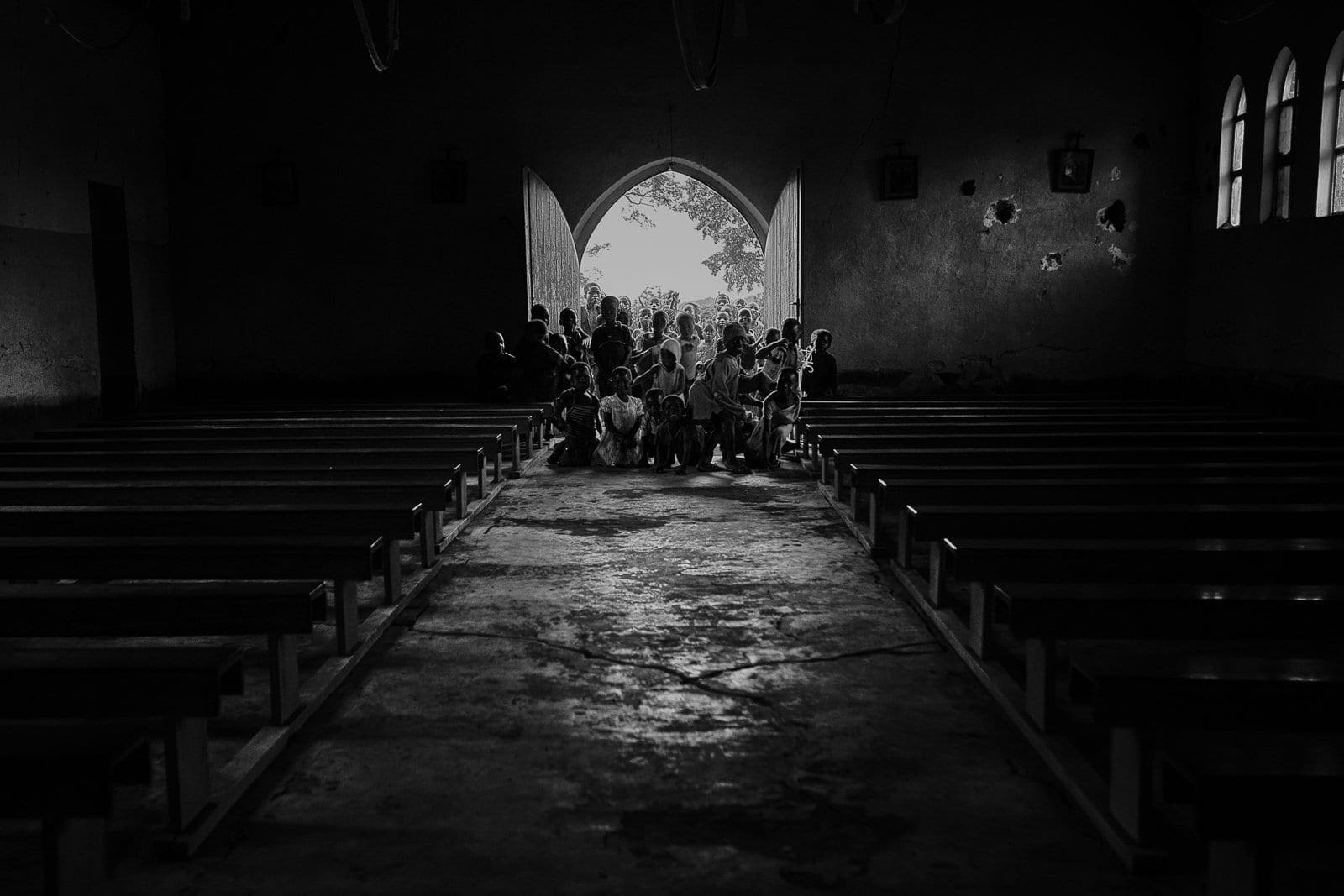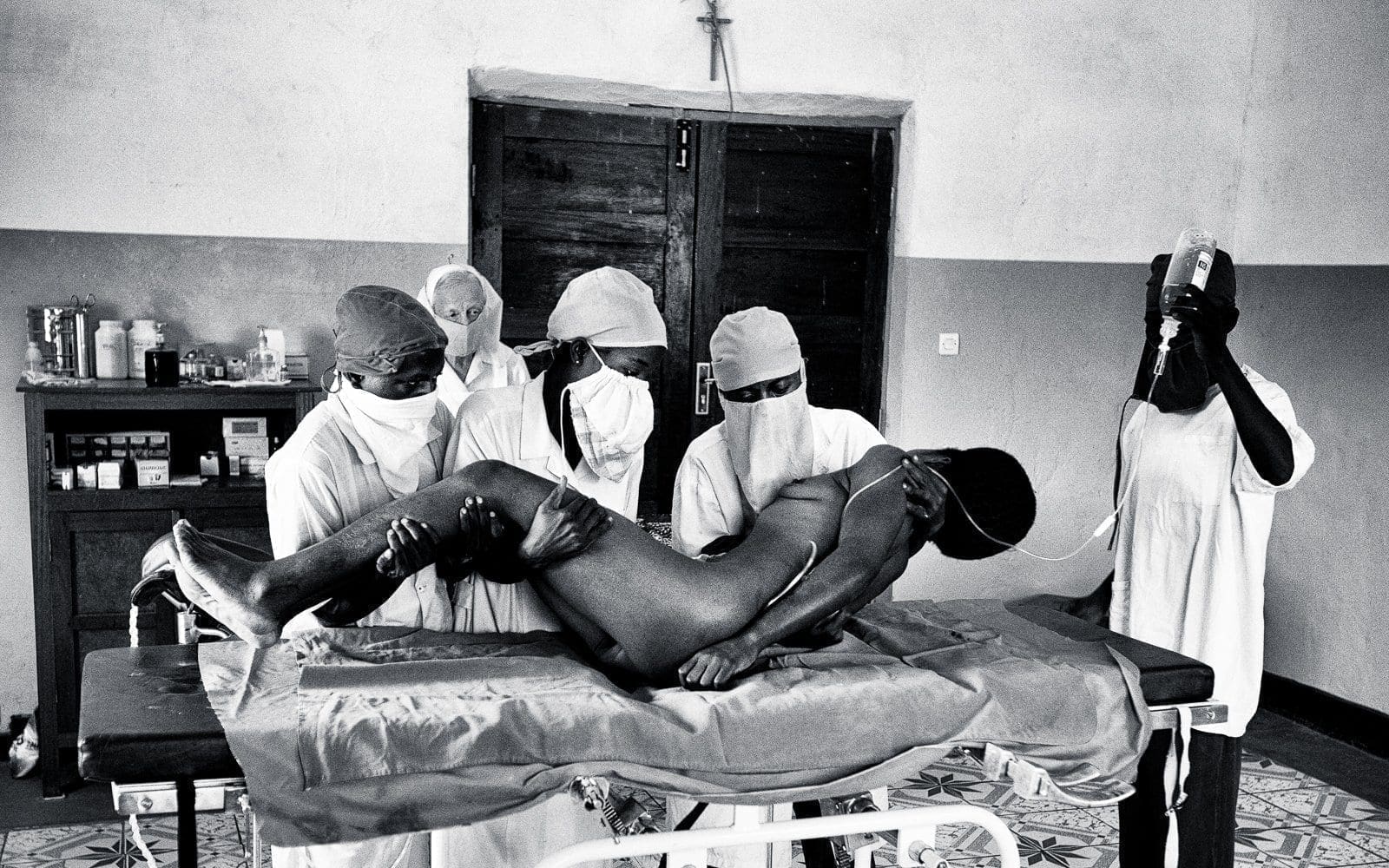The firm, peremptory voice, accompanied by the fists on the battered wooden door of the shack where I slept, echoed, without the possibility of replication, on a June night in the forest of Kapanga, Congo. A night lit by a moon as large as it is bright. It seemed designed for the occasion.
Soeur Maria, an Austrian, had decided at the age of 80 that she had lived long enough and had stopped keeping track of her years.
I met her, a first time, 14 months earlier and she told me that it would not change anything to know her age, and in any case her petite body would wear out in Africa. One day, but not that night.
Facing the bed was a small window, so small that it could not contain that night’s resounding moon.
It was just after 2 a.m. and my shadow, stark, defined, sleepy, faithfully followed my unsteady steps along the red earth path that led to the small dispensary in the village of Ntita inside the forest.
On full moon nights, time went fast, too fast.
On full moon nights, things happened: goats stood restless; dogs howled — though oblivious to reason; termites came out of their nests and flooded every possible space — and it was a feast for the children to pick them up in the morning and toast them, it felt like eating popcorn.
And men abused women.

The parturients – many of them already victims of the same abuse nine months earlier – hearing the call of the full moon would set out, barefoot, traveling up to 40km to reach the village of Ntita.
The next morning, or the following night, they would give birth to the fruit of their womanhood.
And Soeur Maria, an Austrian from Kapanga, 80 years old one day only to lose count, was there. She was always there.
Every night, even on those where the moon was not showing. Even in those where goats, dogs, and termites, following the other side of their nature, were holed up. Where even men stopped, for a moment, considering themselves the center of the world.
That night Soeur Maria awaited my arrival at the dispensary in Ntita.
A few minutes earlier, her firm but gentle voice had snatched me from the bunk placed in front of a small window unable to contain such a large moon.

And so I found myself, too, unable to contain my wonder at the sight of all the babies who would soon be bowing for the first time to that world and to that stepmotherly moon that still did not want them.
The pungent smell of phenol seemed to adorn the walls of the small entrance hall, and the choked groans of women too tired and weak even to rail furnished an empty room.
And there, in a corner, dark, where even that moon kept its distance, in a silent line lingered the dark shadows in composed anticipation of the women who would return home with nothing in their arms.
That June night a few years ago was a full moon night in the forest of Kapanga, Congo.
And that night eight children shouted to the world for the first time. Some without a mother.
Soeur Maria, an Austrian from Kapanga, a year later became part of that magnificent and brilliant moon that only in Africa seems to speak. That same moon that had seen her wear herself out and stop keeping track of her age.
And he had lived for more than 90 years.



